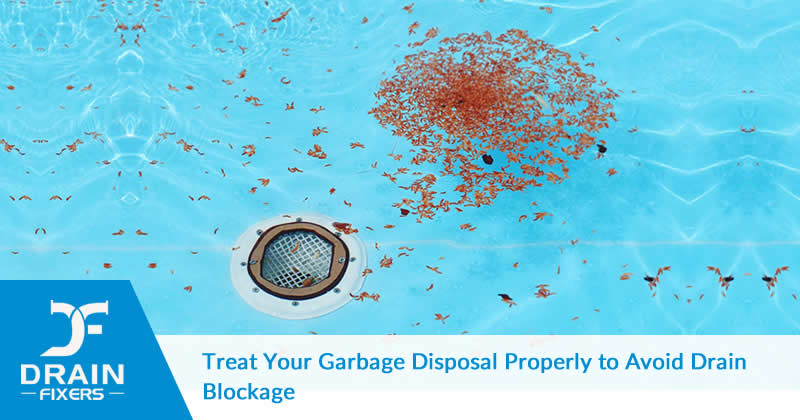Blocked drains and the mess and inconvenience that goes with it is one of those life events we could all do without. Especially when it happens at the worst possible time — before guests arrive for a dinner party or during the holidays.
A big culprit is misusing your garbage disposal. Contrary to popular belief, it’s not suited to every scrap of food. Putting the wrong things down it can lead to serious plumbing problems.
To prevent a big blocked drain repair bill, take note of these six quick tips for using garbage disposals correctly.
1. Skip the grease
Grease might go down your sink as a liquid, but it doesn’t stay that way! Once it cools, it solidifies and becomes a nuisance for your plumbing system, hanging around like a proverbial bad smell. Over time, a solid mass can form, which traps other food and debris. It’s a recipe for disaster in the form of stubborn blockages.
The solution? Once you’ve finished cooking, pour any oil or greases into a tin can or other containers. You can then toss it in the trash after it’s cooled.
2. Keep hair out
We’ve all seen hair collecting around plug holes after a bath or shower. The same can happen with your kitchen sink over time. Hair is actually incredibly strong and wiry. It binds around things, especially grease and food scraps. Again, the problem often gets worse with the passage of time, creating an unforeseen choke point in your garbage disposal.
The easiest way to stop hair from entering your system is by using a pop-up catcher or sink strainer to collect stray strands for easy disposal.
3. Don’t flush oversized items
Garbage disposals are built for smaller shreds of food, less than 2mm in diameter. They are not designed to pass pieces of bread or tougher items like eggshells and vegetable peels. If you try to stuff these things down, you will quickly run into a problem. And even if you manage to squeeze them in, they can still sit further along the pipe.
How can you know for sure? A good rule of thumb to follow is if it doesn’t break down in water, throw it in the bin instead. Being mindful here can prevent major clogs from occurring later.
4. Be careful with food waste
This is an extension of the last tip, but it’s worth repeating. Try to take a more considered approach to food waste before you start washing up and throwing things away. Think about how you will dispose of each item. Any items like bones or meat scraps should go in the recycling food bin. Greasy or starch foods can cause problems, too.
Instead of rushing in and rinsing dishes after eating, take the time to scrape food scraps into your compost or bin.
5. Avoid coffee grounds and starchy materials
Coffee grounds appear harmless enough. They are small and soft, right? Well, they can actually clump together and cause clogs, which require major blocked drain repairs. The same is true for starchy materials like corn. They often settle in your pipes and thicken over time. And even over-the-counter chemical cleaners will find it tough to break down.
Again, if you’re in doubt, head for the recycling bin or trash instead.
6. Use a pop-up catcher
There is a way to filter all these food nasties before they enter the sink. Installing a pop-up stopper or strainer will allow water and smaller particles through, but stop bigger scraps of hair and food in their tracks. It’s easier to get rid of the excess in a bin. If you notice your sink draining slowly, you can lift the catcher, empty it, and give it a clean before popping it back in.
These strainers are very cheap, so there’s no excuse not to have one in both your main sink and garbage disposal.
Stop drain clogs before they start
Following these easy garbage disposal tips can keep drain blogs at bay. Just make sure to give family members and other guests a heads up, too! If you’re already seeing clear signs of blocked drains in Melbourne, don’t wait until it gets worse. Call in the pros.
The blocked drains specialists at DrainFixers can sort out all your garbage disposal plumbing problems. Our team can use the latest tech, including hydro jetting, to clear out your pipes completely. Contact us today to book an inspection or emergency service.
